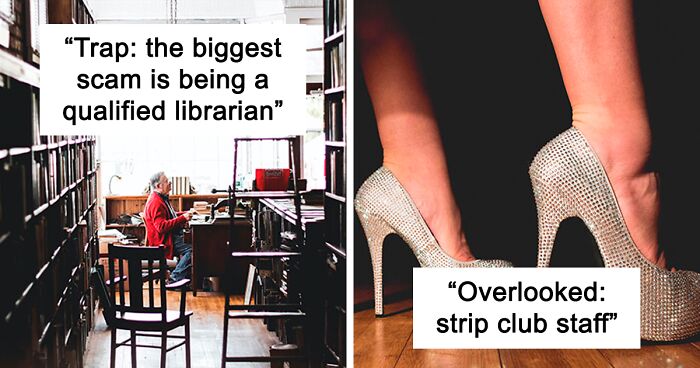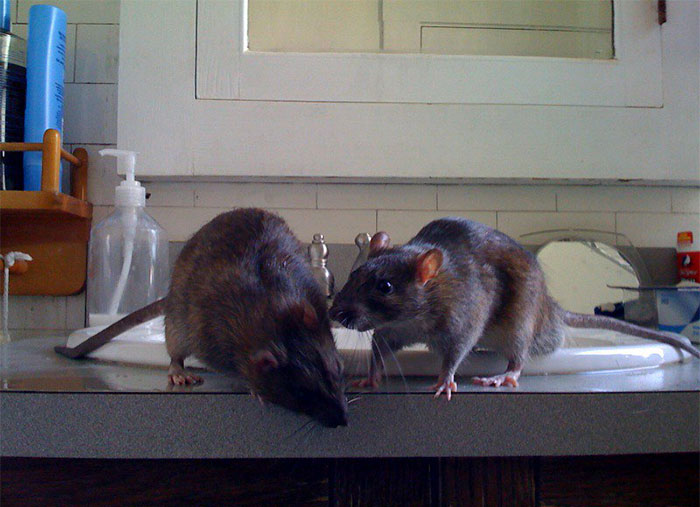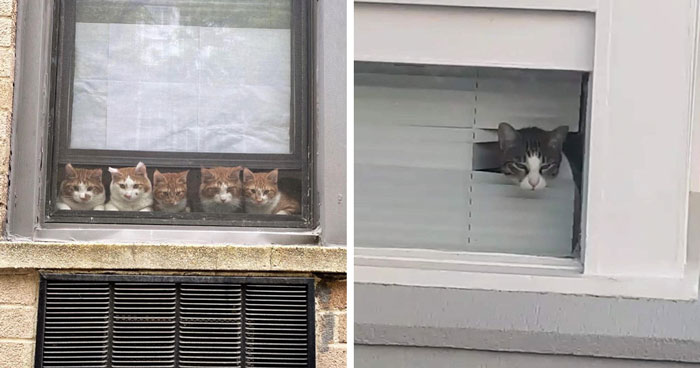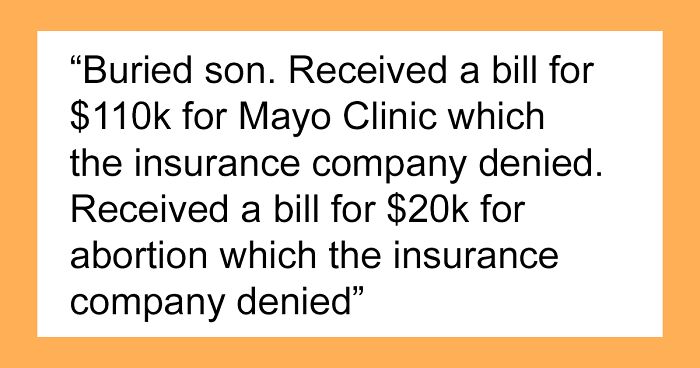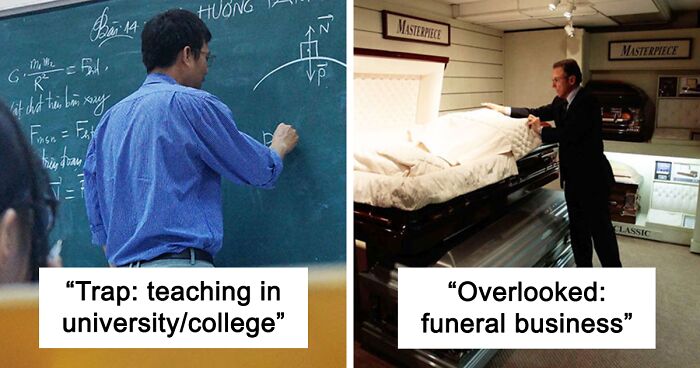
30 Careers That Seem Great But Are Actually Horrible And Careers That Are Often Overlooked, As Shared In This Online Thread
When you were a kid, what did you want to be when you grew up? Perhaps you idolized doctors or veterinarians, and you swore some form of the medical field was in your future. Maybe you always wanted to be a photographer or visual artist? Or you decided to become a pilot after your first experience flying in an airplane? We all grow up with dreams for our futures, but once the time comes to choose a career path, there are a lot more factors to consider than what looks or sounds the most exciting.
One Reddit user sparked an interesting conversation by asking for examples of careers that “seem promising but are actually traps that people consistently waste their education opportunities on” and others that are "often overlooked but unexpectedly lucrative". The post received thousands of replies featuring anything from jobs that require years of education for very little pay to underrated professions that provide surprisingly great benefits and wages. We’ve gathered a list of some of the most helpful responses, so you can have a better idea of what positions to avoid or search for if you're on the job hunt. Let us know in the comments if you have experience in any of these professions, and then if you’re interested in reading another Bored Panda piece featuring glamorized careers that turned into nightmares, check out this list next.
This post may include affiliate links.
 Trap: Teacher.
Trap: Teacher.
Yeah it’s nice to have summers off but working 7am-7pm everyday plus a few hours on the weekends just to make 50k a year. Not to mention dealing with a bunch of whiny parents that don’t give a c**p about their child’s education.
Source: teacher
This is sad. You are in a noble profession. I hope you can find a district that is rewarding.
Choosing a career path is a lot of pressure. Most of us quickly make a decision at the age of 18 before going off to university or entering the workforce and are expected to stay locked into the same field for the next 45 years. Oh, you were interested in pursuing accounting when you were 17 and applying for colleges? Awesome. First, spend $50k on a degree, and then commit 40 hours a week of your life to accounting until you retire at age 65.
Of course, it is always possible to change career paths, but it is not likely to be a smooth transition. If you realize while you’re still in university that another profession seems more appealing, you can change your major. But it might make your degree cost tens of thousands of dollars more, and your "college years" might be extended longer than you'd like. If you have already entered the workforce before having the epiphany that your career is sucking the life out of you, you will likely have to be unemployed for some time while searching for a new job. And if you plan to pivot into a completely different field, more school may be required, which can be extremely costly.
 Teaching in university/college. You have to do a PhD minimum, and consistently churn out new research materials. You'd have invested over a decade getting all the degrees but jobs are scarce so you end up being a temporary faculty for a few more years, doing the same or more amount of work for a fraction of the pay. At least, this is how it is in my country.
Teaching in university/college. You have to do a PhD minimum, and consistently churn out new research materials. You'd have invested over a decade getting all the degrees but jobs are scarce so you end up being a temporary faculty for a few more years, doing the same or more amount of work for a fraction of the pay. At least, this is how it is in my country.
Higher education in the US really needs to re-invent itself. It sells a product at a cost far above the return. It is disappointment after disappointment. When I worked in government we engaged some of the "best" universities in the country. These efforts all failed. They took years to deliver a product a graduate student could complete in months...they had exorbitant administrative fees. They were useless...an abject failure.
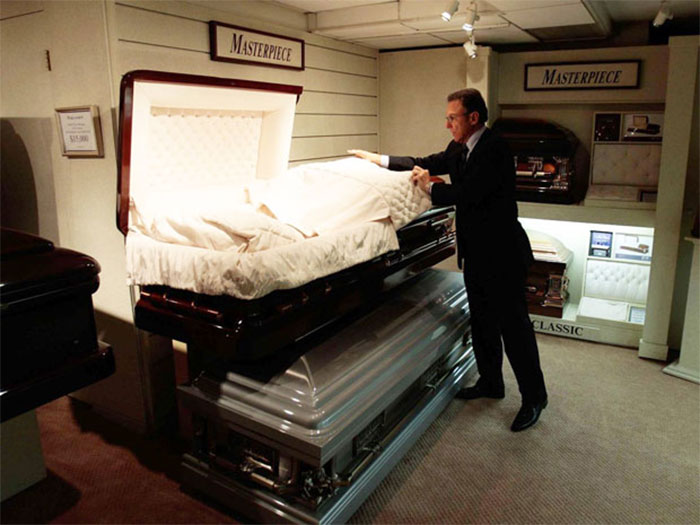 Funeral business is where it’s at..
Funeral business is where it’s at..
Very lucrative and your customers don’t complain. Or slap you!!!
Because it can be so complicated to shift career trajectories, it is important to make an informed decision when entering any profession. Unfortunately, that does not mean watching 10 seasons of Grey’s Anatomy to understand what being a surgeon is like or deciding to go to culinary school after binging Top Chef. It means talking to people in the industry and doing research about the pros and cons of the job.
But as of right now, it is quite common to pursue one profession and later decide to jump ship. According to one 2021 survey, 52% of American workers were considering changing careers, and 42% already had plans in place to make their transitions. This does not always happen at a super young age either. Apollo Technical reports that, “The average age a person changes careers is 39 years old.” Even after earning a degree in one field, many people go down a different path later. Apparently, only 21% of Americans whose studies specialized in a particular major use all of their education in their careers.
 Probably about any kind of artist, but in particular 3D (CG) artist. Tons of art schools popped up selling degrees to be a video game artist or a chance to be an animator at Disney or something. Ended up oversaturating the market with low quality portfolios that had no chance of ever getting into a major studio.
Probably about any kind of artist, but in particular 3D (CG) artist. Tons of art schools popped up selling degrees to be a video game artist or a chance to be an animator at Disney or something. Ended up oversaturating the market with low quality portfolios that had no chance of ever getting into a major studio.
My friends father told him he was wasting his time with art school and should get a real job. That friend was Christopher Rush, creator of Magic the Gathering Black Lotus. After working for Wizards, Chris was offered a gig to make artwork for a video game. He called his mother and told him how much money he was getting. She said "OMG, that's more than your father makes....." But he admitted that his ability to do all that was mainly being lucky enough to be at the right place at the right time. Good luck to you!
 Trap: veterinarian, debt of MD but fraction of the salary. Works if you don't have to pay for college and vet school, but not really logical if you do.
Trap: veterinarian, debt of MD but fraction of the salary. Works if you don't have to pay for college and vet school, but not really logical if you do.
If this is true its a shame, our vet is fantastic and goes above and beyond with the care of our six ferrets (anyone with ferrets knows your life largely revolves around the vet). That being said that while she is very reasonably priced, those prices are still very high. Though I imagine the lack of insurance and infrequency of visits for those who are not vetting always at the vet animals like ferrets, could result in high prices for pet owners and a ton of debt for the vets. This should be fixed, vets are vital and good ones who really care are amazingly special and hard to come by.
Most people have about 12 jobs throughout their lifetimes, so there are a multitude of reasons why someone might want to shift career paths. Not surprisingly, money is commonly a motivator. 39% of Americans who were considering changing careers or had already decided to do so cited a higher salary as their main incentive. Another common reason someone might embark on a new career path is because their goals and priorities have changed over time. What was of paramount importance to you at age 18 might have faded into the background of your life by age 30. It is completely natural for us to grow and evolve over time; there’s no shame in changing careers due to being at a different place in life.
 A lot of non-profits rely on your desire to do meaningful work to get away with some pretty exploitative labor practices. I’m sure it depends though because that’s a really broad category.
A lot of non-profits rely on your desire to do meaningful work to get away with some pretty exploitative labor practices. I’m sure it depends though because that’s a really broad category.
Oh my ! 3 of my relatives are working for non profits. One helps our elder ones stay in their homes, one help people that deal with the conséquences of medical error and the last one take care of people that do not have the ressources to raise their kids (money or health). 3 very different fields... And the same problems "you need money for that project we asked you to prepare? This is going to pass in commission next year. But you have to find a way to make this work for yesturday !". "You would need 5 more personnes to do all the things that need to be done? I undestand, maybe in a couple of years we will have enough money to creat one position... Oh by the way, can you take care of the Travel to Monaco for the administrators next week, WE would need 3 limos to go from the 5 stars hotel to thé casino!" This is truly sick
 Nursing school has to literally lie to students about what being in the floor in a hospital is like so that they don't run away.
Nursing school has to literally lie to students about what being in the floor in a hospital is like so that they don't run away.
I tell students exactly what being a paramedic is like. They usually assume in exaggerating and do it anyway. Then they try it and realize they're now stuck. The job is quicksand.
 Journalist. I started bartending in college to pay for the degree. Got it. I'm still a bartender. You don't make money writing until you die. Or unless you f**k your boss. I had no interest in television news so that was out. Plus, I live in DC. I got tired of the grind real quick.
Journalist. I started bartending in college to pay for the degree. Got it. I'm still a bartender. You don't make money writing until you die. Or unless you f**k your boss. I had no interest in television news so that was out. Plus, I live in DC. I got tired of the grind real quick.
I feel for you. More than ever we need good journalism...but it is a tragedy the opportunities are not there.
Regardless of how they feel about the actual job, sometimes employees decide they just cannot handle their management any longer. Incompetent leadership is another commonly cited reason for leaving a career, as it can cause an uncomfortable workplace environment. Nowadays, greater flexibility in a job is also a hot commodity. When employees have the chance to opt for a comparable job that allows them more flexible hours and a better work-life balance, the choice seems obvious. Lastly, people who want to change careers might just not be satisfied with where they are. For whatever reason, if your job does not align with your values, bores you to death, or negatively impacts your quality of life, it’s important to know that there are alternatives. Most of us don’t have the luxury of avoiding all work, but we certainly should not have to suffer to make ends meet.
 The biggest scam is being a qualified librarian. For terrible pay, organizations want you to have a flipping Master's in Library Science. If the jobs paid more, it would make sense but it's absolutely ridiculous. Even worse because you can sneak your way into being a librarian other ways and still be paid what qualified people are paid (there are always exceptions).
The biggest scam is being a qualified librarian. For terrible pay, organizations want you to have a flipping Master's in Library Science. If the jobs paid more, it would make sense but it's absolutely ridiculous. Even worse because you can sneak your way into being a librarian other ways and still be paid what qualified people are paid (there are always exceptions).
My husband is a librarian. He works really hard: they always have quizzes for children from schools, he reads lectures about literature (and other themes: for example, a while ago he did a lecture on the danger of drug use in school), he always tries to help people to find the book they need, he works at the archive... He's a great librarian, his boss loves him and people appreciate his work... But the pay is ridiculous. And that's so unfair.
 Psychology- I have six years of school and I’ll need more to get to my end goal
Psychology- I have six years of school and I’ll need more to get to my end goal
Plumbing...become a plumber. That technology will not change much in 50 years...always necessary...always useful.
 Any video game career. I wouldn't say any specialized degree is a waste, but it's completely unnecessary. Jobs are super competitive so breaking in w/out experience is hard, and there's more and more candidates every year. One company I worked for said they rejected five thousand resumes for a position they posted. If you are talented to get a job you're talented enough to make 2x more outside gaming. Stress, burnout, and divorce are super common.
Any video game career. I wouldn't say any specialized degree is a waste, but it's completely unnecessary. Jobs are super competitive so breaking in w/out experience is hard, and there's more and more candidates every year. One company I worked for said they rejected five thousand resumes for a position they posted. If you are talented to get a job you're talented enough to make 2x more outside gaming. Stress, burnout, and divorce are super common.
One way to get into gaming is to create good quality content for games (those that accept mods etc). Probably the best resume you can have.
So how are we supposed to choose career paths that we will actually end up enjoying? Consulting some experts is never a bad idea. The Balance Careers provides a list of steps readers can take to “Choose a Career When You Can’t Decide What To Do”, and their first tip is to make a list of your hobbies and interests. First, just write down everything that inspires you, and then start to distinguish what is solely a hobby and what could be a legitimate career path. Even though painting can be a profession for some, if it is what brings you the most joy and relieves your stress, you might not want to turn to it for income too. Rare individuals can make a living off being an author, dancer or film director, but relying on a passion for your livelihood can suck the joy out of it, so be careful not to pursue anything that is too precious.
 According to what I've seen with a woman I dated, Architecture. Lots of hungry, driven kids coming out of architecture school ready to make their mark on the world. Reality is that Architects make little money while being pinched between developers, customers, and consultants. Everyone other than them makes the money, and they're expected to work crazy hours.
According to what I've seen with a woman I dated, Architecture. Lots of hungry, driven kids coming out of architecture school ready to make their mark on the world. Reality is that Architects make little money while being pinched between developers, customers, and consultants. Everyone other than them makes the money, and they're expected to work crazy hours.
Sounds pretty shitty.
Same with interior design. Post secondary schools have pumped out so many graduates that the market is saturated. Combined with the growth of home reno programs everyone thinks they can be a designer snd are shocked when their 'design' is a huge old mess
 Working as an EMT or Paramedic. The work is rewarding but most companies are private and pay dog s**t most of your money will be made on Overtime which is mostly forced due to understaffing. I did it for 6 years and completely burned out due to being overworked. Now getting picked up by and FD or a state/city run EMS program is different and better in my opinion but most people get stuck at a private company for too long
Working as an EMT or Paramedic. The work is rewarding but most companies are private and pay dog s**t most of your money will be made on Overtime which is mostly forced due to understaffing. I did it for 6 years and completely burned out due to being overworked. Now getting picked up by and FD or a state/city run EMS program is different and better in my opinion but most people get stuck at a private company for too long
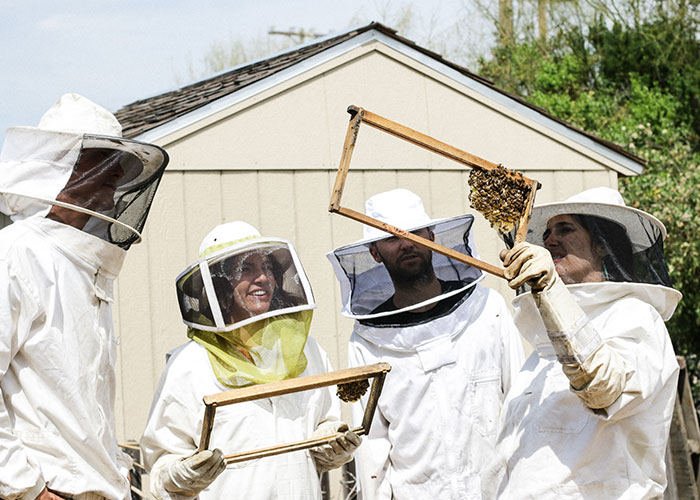 I do beekeeping and while i find it very rewarding it seems like a growing trend of a trap. There have been a ton of people who "want to get into it". Probably spend like $400 on equipment/bees and are done with it after 2 years. You could buy a ton of honey for that. Plus hobby beekeepers are worrisome because if they don't treat their bees properly they can be a vector for disease.
I do beekeeping and while i find it very rewarding it seems like a growing trend of a trap. There have been a ton of people who "want to get into it". Probably spend like $400 on equipment/bees and are done with it after 2 years. You could buy a ton of honey for that. Plus hobby beekeepers are worrisome because if they don't treat their bees properly they can be a vector for disease.
Next, The Balance Careers recommends determining your skill set and what working style you prefer. For example, if you are extremely extroverted and enjoy making conversation with clients and colleagues, you might not want to choose a remote job that rarely affords you social interaction. And when noting your skills, consider “hard skills” like computer programming or being fluent in another language and “soft skills” like communication and organizational abilities. Consider all of your strengths and weaknesses and lean into what can help you land a new job.
 Trap: stripper
Trap: stripper
Overlooked: strip club staff
I know you don't need a degree, but if I had a dollar for every girl that thought stripping was it... Wait, I do have a dollar for every girl. Cause I stayed on the staff side. You have more responsibility than dancing, but if you get some management or accounting or business training, you can move right up to mgmt quickly. Most people running a club do not have a formal education. They're just doing what seems best, which can turn into who knows what. If you are professional, sober, not trying to sleep with the girls, and competent in the actual work, you're a unicorn. The hours are crazy and people are crazy, but the money is great. And I feel like it's so much more honest than a lot of corporate b.s. I sat through in vanilla jobs. A really well run club is a beautiful thing.
Also the trades, and other service work like hairdressers and house cleaners. You can make right under six figures if you work for yourself and can handle people well. These are both hard on the lungs though over time if you don't mask and ventilate well when working with chemicals.
 Yoga teacher. I am still doing my yoga teacher training, but it is basically an MLM.
Yoga teacher. I am still doing my yoga teacher training, but it is basically an MLM.
Like many "alternative medicine", new age therapy and more... (but Yoga is effective in some way...)
As an exercise it's amazing! Honestly, I'm not even a little bit a spiritual person. I don't even like to mediate at all. But I practice yoga purely as a physical exercise and it has given me so much strength and condition, while being very interesting to practice (unlike doing like gym reps or running miles to nowhere)
Load More Replies...Multi-level-marketing like Tupperware, Mary Kay or Amway. The only way to make money is to have people under you.
Load More Replies...  Carpentry seems to be good. I know two families where the dad is a carpenter. One is specialised in doing structural work like wooden beams for house roofs and so on, the other combined it with a love for art history and went into the restauration of antique furniture.
Carpentry seems to be good. I know two families where the dad is a carpenter. One is specialised in doing structural work like wooden beams for house roofs and so on, the other combined it with a love for art history and went into the restauration of antique furniture.
Both are their own boss, both are financially stable, own their own houses, provide their families, etc. When you have enough money saved up, you can also very effectively flip houses, because you can do so much of the work on your own.
If you are having a lot of trouble narrowing down what industry you would like to pursue, consider taking a career aptitude test. While you can take your results with a grain of salt, it does not hurt to receive a second opinion on what industries you might thrive in, especially if the test brings up career options you might have never considered. There are even personality tests that can help you determine how to best utilize your skills and traits. The Myers-Briggs Personality Type Indicator, for example, breaks down your personality into 4 categories: extroversion or introversion, sense or intuition, thinking or feeling, and judging or perceiving. With 16 potential types, this test can provide an in-depth analysis into your personality, including common career paths your type pursues.
 Theater. Unless you are already wealthy and know people in a big city that can get you a position in a company. Everyone wants in, much competition, low pay. Bad hours. Lots of travel and basically begging for work. I could say more about the things that have disappointed me. There has been some fun moment's and good people but I wish I would have gotten a degree in something useful. Putting Theatre design/production major on a application has never helped me.
Theater. Unless you are already wealthy and know people in a big city that can get you a position in a company. Everyone wants in, much competition, low pay. Bad hours. Lots of travel and basically begging for work. I could say more about the things that have disappointed me. There has been some fun moment's and good people but I wish I would have gotten a degree in something useful. Putting Theatre design/production major on a application has never helped me.
Also there are a LOT of prima donnas wanting ALL the attention ALL the time :I
 TRAP: Nursing
TRAP: Nursing
I was used, abused, overworked, and under paid. Everyone ends up burning out quickly, and the working environment becomes hostle. I almost never got a chance to take a lunch, and was consistently asked to stay overtime to cover for a total of 16 hours. My husband had to come pick me up several times, because I was in not shape to drive home after covering. Having to cover someone was a daily chore, because the nurses I worked with decided to come in to work from a day to day basis.
This is so sad. Many people get into nursing because they like to help people but don’t have boundaries. When I started I didn’t have very clear boundaries and have learned as I go along. I don’t put up with c**p and rarely ever work extra. As long as we allow people to abuse us, it will continue.
 Any city,state,county,federal job that is union. Get on the gravy train young and when the opportunity arises and it will, take the new job advancement. The pay rate usually has generous raises and good benefit plans. You can enjoy a good life while you’re working and A great retirement.
Any city,state,county,federal job that is union. Get on the gravy train young and when the opportunity arises and it will, take the new job advancement. The pay rate usually has generous raises and good benefit plans. You can enjoy a good life while you’re working and A great retirement.
Once you’ve narrowed your options down to a few industries you might want to dive into, feel free to start exploring them. As Alison Doyle of The Balance Careers notes, “Many skills are transferable from one industry to another. Look into a variety of industries and find out which skills are most important in each of them.” Often times, you can even shadow a professional in any field to get first-hand insight into an average day in their career. Informational interviews can also help, as they are an opportunity for you to be in control and ask your burning questions without any of the pressure of traditional job interviews. Lastly, internships can be a great starting point to help determine whether you want to pursue a career full-time. Many companies offer them as a way to ease into the industry and make connections, and after completing an internship successfully, you are likely to have a job lined up.
 Being a chef. A lot of people spend a small fortune going to culinary school in order to work in a hot, stressful kitchen 70 hours a week, making a s***y salary that usually ends up being about the same rate (or less) that the burnout line cooks and dishwashers make per hour. Long days, endless deadlines, back pain from being hunched over prepping stuff all day, cuts and burns all over your body… not worth it, in my opinion.
Being a chef. A lot of people spend a small fortune going to culinary school in order to work in a hot, stressful kitchen 70 hours a week, making a s***y salary that usually ends up being about the same rate (or less) that the burnout line cooks and dishwashers make per hour. Long days, endless deadlines, back pain from being hunched over prepping stuff all day, cuts and burns all over your body… not worth it, in my opinion.
 Surprisingly lucrative: Travel Agent/Rewarding
Surprisingly lucrative: Travel Agent/Rewarding
So the internet has essentially allowed everyone and their mother to make up their own holiday. What the internet doesn't tell you is that the average person spends 3 WORKING DAYS planning/booking their holiday.
Rich folk don't want to waste their time on that. Smarter upper middle class families also realise the time saving.
So now I work from home putting together fancy holidays for people who have reached a stage in their life where their free time is much more important to them.
​
Bonus: Free or heavily discounted holidays.
 Painting houses honestly. The market is constantly saturated with cheap workers so if you can get a reputation for quality work you can make a pretty penny.
Painting houses honestly. The market is constantly saturated with cheap workers so if you can get a reputation for quality work you can make a pretty penny.
My BIL does that, he can allow himself working only 8 months a year
According to a report from Apollo Technical, the list of the most satisfying careers in the world includes clergies, chiropractors, dentists, firefighters, physicians, nurses, physical therapists, teachers, software developers, psychologists and surgeons. There are various factors that contribute to job satisfaction like low levels of workplace stress, regular hours, variety in daily tasks, a positive company culture, opportunities for growth, and high salaries. Of course, not every job listed above receives a great salary. Teaching in particular is notorious for providing pitiful wages, but most of these jobs do include helping others, which is widely considered an easy way to boost our own happiness.
 Information Technology:
Information Technology:
Its less that you can't find work, but you never find work at your level, and everywhere I've ever worked (outside of the military wherein I got experience doing incredibly high level engineering work) has people who only half a*s know what they are doing. We are talking mistakes that someone on the lower levels of IT should be making.
The jobs you then wind up getting will have bosses getting angry at you over things you couldn't possibly know: Like how the network is structured, while at the same time refusing to give you network maps.
Being in IT gets old really fast... it's fun for the first few years... then it's just draining. and trust me it's the users/clients, not the actual work that drains you.
 Trap: biotech and biotechnology. Long hours, low pay, most of the work is extremely dull and monotonous relative to what I thought “science” was, not much in the way of transferable skills.
Trap: biotech and biotechnology. Long hours, low pay, most of the work is extremely dull and monotonous relative to what I thought “science” was, not much in the way of transferable skills.
I'm in biochemistry and I can partially confirm; science is more a repetitive grind and less 'EUREKA!' than one might think. The power in science lies in reliable results and the reliability comes from reproducibility, which is exactly as exciting as it sounds.
 Trap: Physical Therapy.
Trap: Physical Therapy.
In the US it's a doctorate program, so on top of requiring a 4-year undergrad degree you need to complete 3 more years of graduate education. High tuition, low salary for a doctorate, and most of the fillable positions are what we call patient mills. Essentially companies want to see as much patients as possible reducing 1-on-1 time and reducing quality of care.
Anyone in my city with a PhD in PT is laughed at. Bachelor is enough. No need for either Master or Doctorate. There's a guy in particular, left town to go to the USA to get his PhD, came back to practice before passing the exam and most every patient was laughing at him directly, but the other PTs behind his back, in front of us. He was not the only one.
Whether or not a job is a "trap" is extremely subjective, but it is fascinating to hear that some of these enticing career paths are not all they are cracked up to be. The next time my parents ask why I did not become a doctor, I'll tell them it's because of the grueling hours and all of the student debt I would be saddled with. (It has nothing to do with the fact that there's no way I could have made it through medical school or a residency...) Enjoy reading the rest of this list, and be sure to upvote the responses you found most informative. Then let us know in the comments if your career path was a trap or if it's surprisingly lucrative. (I hope to hear that it's the latter!)
 Trap: Pilot.
Trap: Pilot.
You have to take on $150k debt to train, there’s oversupply of pilots in the West (and that was pre-covid) so you generally end up at a crappy low-cost carrier earning surprisingly little and paying back that debt.
You start off with little control over your hours and holidays. You compete with other pilots for the most attractive bases.
Contracts are very one-sided and redundancies are fairly common.
It was a pretty sweet career for a while, and senior pilots still enjoy a lot of benefits.
But to me, it just looked like a multi-decade grind of shift work and poor pay in some c**p corner of the continent.
In secondary school, after seeing some badass Nigerian female fighter pilots, I wanted to be like them. Then, one of them died, so I noped out and decided that commercial flying was the best for me. Met an uncle who was a pilot. He was struggling and still had debts from school. But sir, when you fly to a nice country, you take vacations right? Nope. Now, I'm a writer studying engineering. Will stick to that.
 Over saturated id have to say on a serious note is most definitely Real Estate
Over saturated id have to say on a serious note is most definitely Real Estate
Must be all those chodes selling scam real estate courses for like 10k.
 Trap: therapist/counselor
Trap: therapist/counselor
Surprisingly lucrative: school psychologist
*if you’re interested in being a school psych feel free to reach out, especially if you are an undergrad psych major.
Skills shortage list for different countries will give you a good indication of what’s in demand. Also, I’m surprised no one said brick layer on this list - always on skills shortage lists and can end up making great money
I worked in high-tech field service for ten years, "road warrior" level... I had a lot of fun, travel, adventures, & enjoyed livin' large on expense account... My companies paid for me to get to do things that most people never get to do. The downside was that it was exhausting, endless unpaid overtime, the hassles of going through airports with all the silliness they do to you, and dangerous overseas trips to mostly uncivilized countries... It can be fun, but oh my! does the fun come at a cruel price... So beware...
I'm a journalist and get to do some pretty cool s**t and meet amazing people. I agree that the pay does suck.
I think the biggest lesson here is that a lot of people a career without knowing the realities of how that field really works. Then they're disappointed. Schools are only interested in selling you expensive degree, and they usually do a very poor job of helping you know what to expect. This is why mentorship programs and internships are so important. (And do your research! Your dad who keeps telling you that "computers" is a great career - is just parroting what he's heard, and doesn't really know what he's talking about.)
I'm not sure about other places but in my country you're under a horrible amount of stress all through high school to decide what you want to be, and then you hardly have any chance to change your mind. What does a 14-18 year old knows of the world, of work, of happy work-life balance etc.? We had zero help, much less useful help in choosing, but everyone and their grandma was constantly on us about what uni we wanted to go to. When I said I didn't because I didn't feel a particular "calling" to any profession that needs a degree it was like saying I love Hitler. We had no info on what xyz job really is like, and there were millions of jobs we didn't know existed. But decide already, surely you know what you want to be!
Load More Replies...Skills shortage list for different countries will give you a good indication of what’s in demand. Also, I’m surprised no one said brick layer on this list - always on skills shortage lists and can end up making great money
I worked in high-tech field service for ten years, "road warrior" level... I had a lot of fun, travel, adventures, & enjoyed livin' large on expense account... My companies paid for me to get to do things that most people never get to do. The downside was that it was exhausting, endless unpaid overtime, the hassles of going through airports with all the silliness they do to you, and dangerous overseas trips to mostly uncivilized countries... It can be fun, but oh my! does the fun come at a cruel price... So beware...
I'm a journalist and get to do some pretty cool s**t and meet amazing people. I agree that the pay does suck.
I think the biggest lesson here is that a lot of people a career without knowing the realities of how that field really works. Then they're disappointed. Schools are only interested in selling you expensive degree, and they usually do a very poor job of helping you know what to expect. This is why mentorship programs and internships are so important. (And do your research! Your dad who keeps telling you that "computers" is a great career - is just parroting what he's heard, and doesn't really know what he's talking about.)
I'm not sure about other places but in my country you're under a horrible amount of stress all through high school to decide what you want to be, and then you hardly have any chance to change your mind. What does a 14-18 year old knows of the world, of work, of happy work-life balance etc.? We had zero help, much less useful help in choosing, but everyone and their grandma was constantly on us about what uni we wanted to go to. When I said I didn't because I didn't feel a particular "calling" to any profession that needs a degree it was like saying I love Hitler. We had no info on what xyz job really is like, and there were millions of jobs we didn't know existed. But decide already, surely you know what you want to be!
Load More Replies...
 Dark Mode
Dark Mode 

 No fees, cancel anytime
No fees, cancel anytime 



